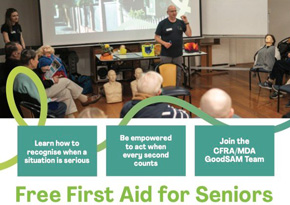Why to brides have to visit the mikvah?…ask the rabbi
Rabbi Raymond Apple answers your questions.
THE MARKS OF A GOOD JEW

Rabbi Raymond Apple
Q. Is there a way to quantify the marks of a good Jew?
A. Jews are recognised, say the Talmudic sages, by three things – they are “rachmanim” (compassionate), “bay’shanim” (modest) and “gom’lei chassadim” (kind).
Compassion means feeling for others. Modesty means not being blatant. Kindness means being helpful and supportive.
Two of the sages (Avot D’Rabbi Natan chapter 4) were talking about life without a Temple. Rabbi Joshua said that without sacrifices there was no means of atonement. Rabbi Yochanan said that the way to atonement was “g’millut chassadim”, doing kindly deeds.
DEFINING HAPPINESS
Q. How would Judaism define happiness?
A. When the Hebrew Bible uses the word “ashrei” for happiness it is actually plural.
It’s a collective noun because happiness is different things to different people. It can be emotional – a feeling of exhilaration and delight. Or psychological – a feeling of satisfaction.
According to Samson Raphael Hirsch in the 19th century, happiness is having a direction in life, a purpose, a goal.
Conan Doyle might have summed it up when he put into Sherlock Holmes’ mouth the words, “Watson, the game is afoot!” When the game is afoot, you’re embarked on something exciting.
Whichever concept you choose, happiness is both passive and active. Passive, in that you are suffused with the feeling that, in Robert Browning’s words, “God’s in his heaven, all’s right with the world”.
Active, in that you are on the move and every fibre of your being is tingling with joy. It amazes you to think how happy you feel.
It sounds like C.S. Lewis’ book title, “Surprised by Joy”, which the Book of Psalms anticipated when it said (Psalm 30), “Joy cometh in the morning”.
FEMININITY & THE MIKVAH
Q. Why do brides have to go to the mikvah?
A. A mikvah is a small pool constructed according to ancient rules.
It contains 40 se’ahs (a se’ah is about 3 gallons) of natural water – from rain, a natural spring, etc. – though it may be topped up with tap water and heated. The water level reaches the chest of an average person. Steps and a hand-rail lead down into the mikvah.
The lead-up to the wedding is busy for everyone, especially the bride. She often finds she hasn’t a moment to herself. Not only to think about the ceremony, but to be ready for the destiny that lies ahead.
In a sense, the moment of aloneness comes when she immerses in the water of the mikvah and offers the deepest prayer of her heart that she and her future husband may be united in love and happiness all the days of their lives.
The mikvah is an essential institution, along with the synagogues, yeshivot, schools, libraries, a Beth Din, Chevra Kadisha and Jewish shops, which together make Jewish living possible.
In some ways it is even more essential, because it consecrates Jewish marriage and family life to the purpose of Jewish commitment and continuity.
From Biblical times, immersion in the mikvah was an act of spiritual dedication. The Kohen Gadol (high priest), for example, had to immerse himself in order to conduct the Yom Kippur rituals.
Today a mikvah is used by a bride before marriage, a married woman after her monthly period, a mother after childbirth, and a person (male or female) converting to Judaism. In some communities it is also used by men in preparation for sacred occasions, especially the High Holydays.
Ancient mikva’ot have been found in many places including Masada, evidence that the mikvah was used throughout history.
Immersion is not intended to fulfil a hygienic purpose, since one must be physically clean before entering it. Its significance is spiritual, ushering in a new phase in a person’s life.
For the bride it consecrates the marital union. Within marriage it acknowledges the privilege of love and intimacy which enables a couple to enjoy each other and create new life. Abstinence from sex during menstruation and for seven “clean” days thereafter ensures fresh excitement in a marriage every month.
Some ask, why do we need rituals in order to feel spiritual? The answer is that this is the genius of Judaism, ritualising and dramatising great ideals to ensure that concepts and values do not vanish into thin air.
An additional contribution made by the mikvah is to celebrate the feminine life cycle. The rhythms of life are sacred for every Jew, and especially for the Jewish woman.
Rabbi Raymond Apple served for 32 years as the chief minister of the Great Synagogue, Sydney, Australia’s oldest and most prestigious congregation. He was Australia’s highest profile rabbi and held many public roles. He is now retired and lives in Jerusalem.






